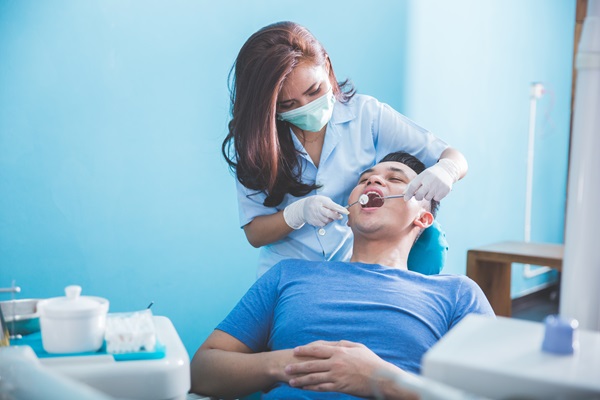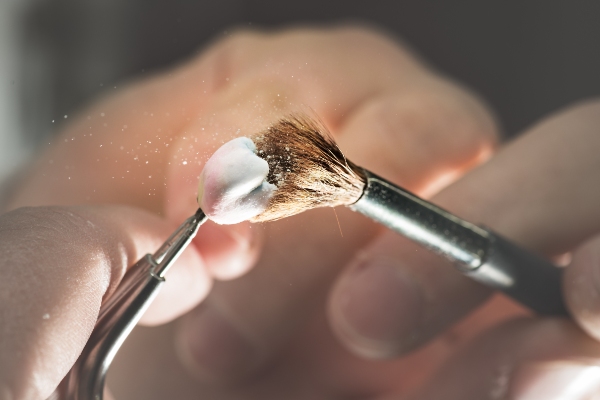The Benefits of Regular Visits to a Preventative Dentist

Seeing a preventive dentist can help keep your teeth and gums healthy. Prevention is always better than extensive treatments, especially when it comes to dental health. This provider can perform treatments that can keep dental problems at bay. Here are some of the benefits that you can enjoy from visiting a preventive dentist for regular checkups.
It wards off serious health issues
Studies reveal that many serious general health problems begin in the mouth. Poor oral care can trigger an inflammatory response throughout the whole body. This makes an individual vulnerable to many different types of ailments. Lack of oral hygiene allows more bacteria to seep into the bloodstream. Some of the diseases that develop due to poor oral care are:
- Diabetes
- Osteoporosis
- Respiratory disease
- Cancer
- Heart disease
Visiting with a preventive dentist can keep these illnesses at bay. The screenings can help determine if the patient has a developing oral problem. Once the dentist spots the issues, early treatments can start. The possible infections will not reach the bloodstream and cause these diseases.
It stops cavities from progressing
Cavities can develop right away. But regular appointments with a preventive dentist can stop them from forming or worsening. A professional dental cleaning can prevent plaque and tartar from building up. The dentist can also provide fluoride treatments and dental sealants. Fluoride can strengthen and protect teeth from bacteria. Dental sealants can keep bacteria and food particles away.
It detects jaw problems early
Most people do not know that they have jaw or teeth issues. Without treatment, these problems can cause jaw misalignment. Chronic tension headaches often happen because of this issue. A preventive dentist can spot early signs of jaw and teeth problems. Custom oral appliances can prevent dental and jaw disorders from worsening.
It eliminates bad breath
Halitosis or bad breath is a symptom of infection or dental decay. Foul breath that does not go away may indicate a developing oral problem. This type of breath cannot go away by using mouthwash or sucking on mint candy. Seeing a preventive dentist can provide regular professional dental cleanings. These cleanings can remove stubborn plaque and tartar that contribute to the formation of cavities and oral infections. Bad breath will go away later on.
It helps avoid dental injuries
Playing contact sports can expose the teeth, gums, and jawbone to possible injuries. The same applies to outdoor adventures. Seeing a preventive dentist can provide the patient with a custom-fit mouthguard. This dental appliance can serve as a shield around the teeth and soft tissues of the mouth.
It provides gentler treatments
Regular checkups with a preventive dentist can spot minor issues. The dentist can start treating them right away. Scraping away the tartar and plaque during every visit is a minor treatment. It is gentler than having dental fillings or root canals later on.
It enhances one’s smile and general appearance
Maintaining a bright smile is possible with the help of a preventive dentist. The appointments can be a chance to perform professional dental cleanings. The dentist can polish the teeth after. This can result in a whiter smile even without whitening treatments.
It saves time
Visits with a preventive dentist can save time. Dental cleanings and preventive treatments do not take long to get. It is better to dedicate oneself to these appointments than go to a dentist for extensive treatments. Preventive treatments can also prevent dental emergencies that can be disruptive to one’s schedule.
It keeps gum disease at bay
Tartar and plaque buildup can increase one’s risk of developing periodontal disease. A preventive dentist can remove these threats right before they create serious damage. Fluoride treatments can help an individual avoid gum disease by protecting the teeth from bacteria buildup. These treatments can also strengthen the teeth by preventing enamel erosion.
Practicing preventive dentistry at home
Visiting a preventive dentist every six months is ideal. In between visits, an individual can perform specific methods that can prevent dental issues as well. These simple techniques will not take much time. Here are some of them:
- Flossing before bed can help clean the difficult areas of the mouth, such as the back teeth.
- Brushing for two minutes twice a day can also keep the plaque and food particles off the dental surfaces. Always remember to use an antibacterial mouthwash after brushing. Change the toothbrush once the bristles are frayed for effective cleaning.
- Eating nutritious foods can strengthen the immune system. This can help fight off harmful bacteria.
Your preventive dentist can help you achieve your dental health goals
Research shows that your oral health is connected to your general health. Preventing teeth and gum problems must be a priority. That is why demanding schedules and busy lifestyles must not stop you from seeing your preventive dentist. Keeping your appointments can give you many dental and general health benefits. Working with your preventive dentist can help you achieve good dental health for the rest of your life.
Request an appointment here: https://www.casasadobesdentistry.com or call Casas Adobes Dentistry at (520) 365-0559 for an appointment in our Tucson office.
Check out what others are saying about our dental services on Google: Preventative Dental Care in Tucson, AZ.
Recent Posts
When it comes to preventive dental care, the approach is two-fold. First, it involves going to the dentist for regular checkups and performing any recommended follow-up treatment. Second, good oral health habits are crucial for keeping the body in good working order. For people living with chronic conditions such as diabetes and osteoporosis, keeping up…
Using dental fillings to treat cavities is one of the most common types of routine dental care. The American Dental Association reports that approximately 91% of adults will experience at least one cavity in their permanent teeth at some point in time. Fortunately, the high demand for this type of dental work has led to…
Are you looking for more information about routine dental care? Visiting your dentist on a regular basis is vital to your having a healthy mouth. When your mouth is healthy, it is likely that the rest of your body is going to be healthy, too. Ready to find out how often you need to visit…
Regular teeth cleaning is important not only for oral health but also overall health. While many people may schedule regular doctor appointments, they may forget about dental care. However, routine teeth cleaning is critical and just as important as a physical wellness exam.There are many diseases that stem from bacteria and other harmful things which…


